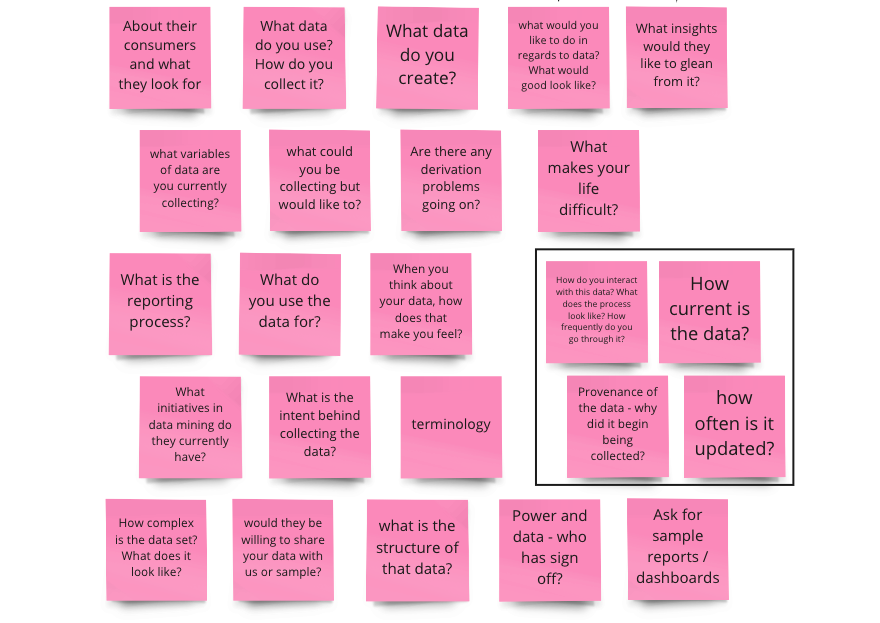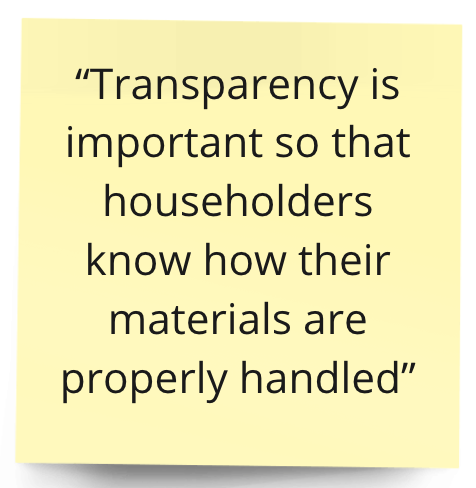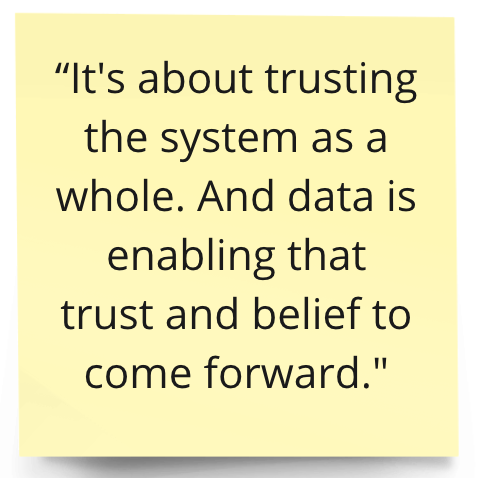In August, we revealed that we’d joined a consortium of organisations backed by Innovate UK and dedicated to dealing with the UK’s million-tonne plastic-packaging waste problem.
Since then, we’ve been working on developing and delivering the initial stages of the Plastics Packaging Portal, which includes:
- a new open standard for plastic-packaging data
- an extension of the the Open3R Household Waste Recycling Centre data standard, which we started developing last year with Your Dsposal to help standardise information about local recycling facilities
- Online portals to streamline the collection of these two datasets, enabling them to be linked together and opening up access to this data for everyone along the plastic-packaging value chain
The ‘discovery phase’
According to the Government Digital Service Manual:
“Before you commit to building a service, you need to understand the problem that needs to be solved.”
That’s where the ‘discovery phase’ comes in – it’s where you learn about potential users, what their needs are and what they want to achieve.
To inform the design of our data standard, we needed to get a good understanding of the landscape of data within the plastics-packaging value chain, and build a community of stakeholders who wanted to improve the situation.
To do this, we ran six stakeholder workshops and did five interviews with people from across the value chain, including brands, manufacturers, compliance schemes, recyclers, trade bodies and government. In total, we spoke with 36 people and engaged 42 organisations.
Through these incredibly rich discussions, we were able to identify and map all of the steps of the value chain, and understand the main pain points relating to data.
What we learned
The three main challenges that our potential users faced were:
- A lack of clarity regarding changes to regulations, generating a lot of unease. The introduction of Extended Producer Responsibility (EPR), a Plastic Packaging Tax and Deposit Return Schemes (DRS) create a lot of uncertainty for businesses on the data that they might have to collect in the future, and to what level of granularity and precision.
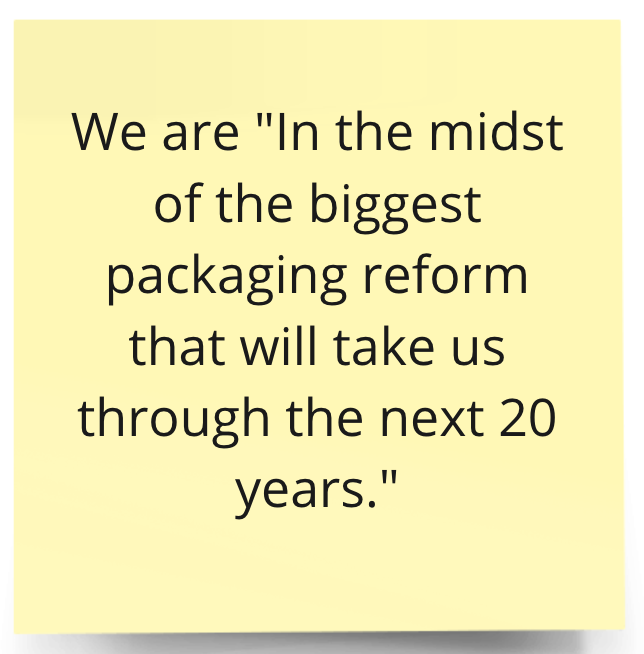
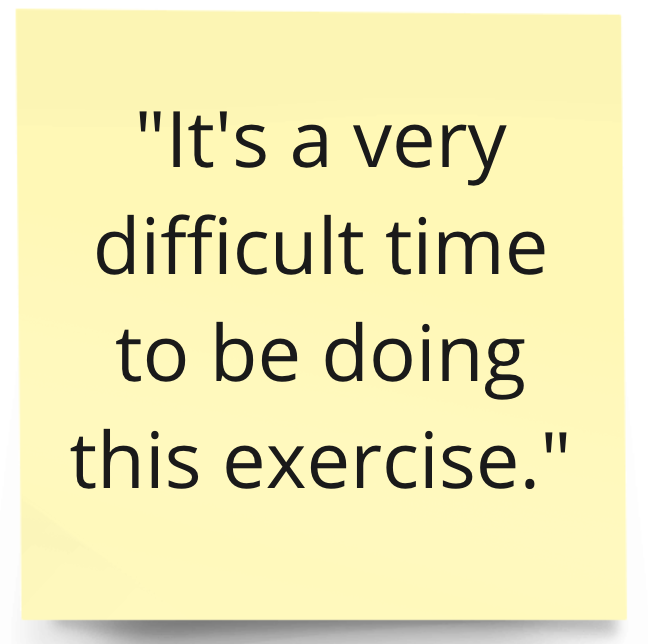
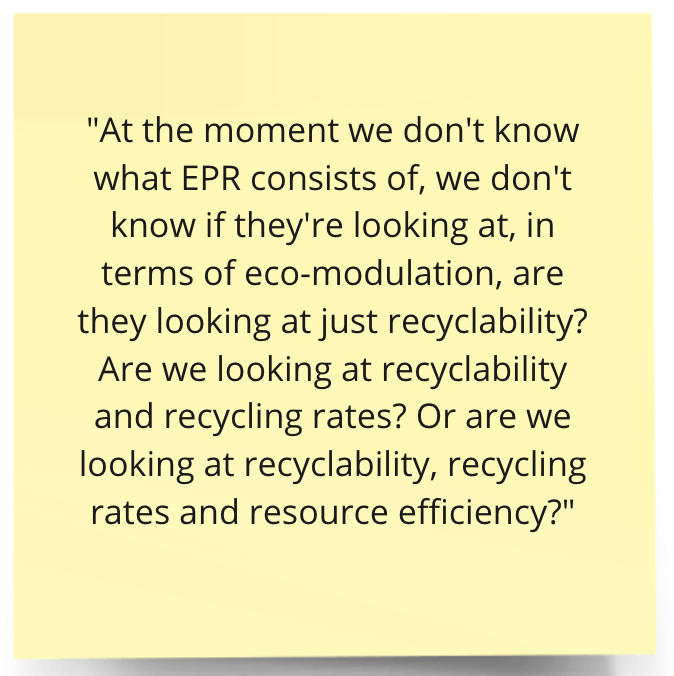
- Data consistency along the value chain is another challenge. Our participants referred to peers inputting decimal points in wrong places and using incorrect units of measurements as classic ‘human error’ pains. They also mentioned that organisations use different terminology to describe the same things, and that data capture systems often having no validation checks to flag gross errors at entry points – all impacting on the quality of data and calculations thereafter.
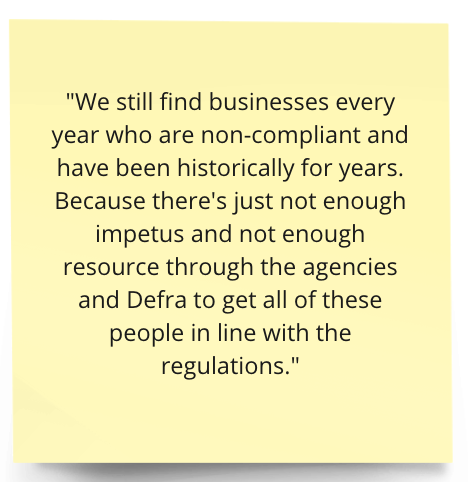
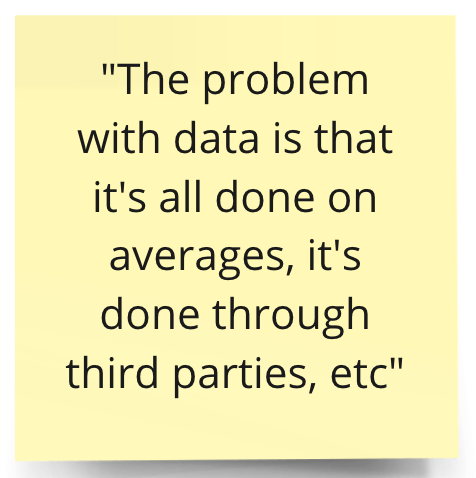
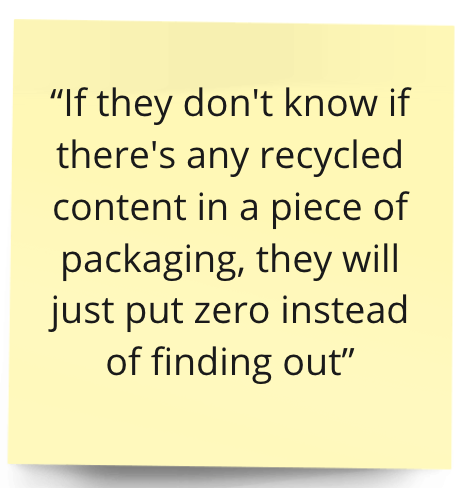
- The transparency of data, or lack thereof, was also frequently brought up in discussions. Brands and retailers said they really want to get their hands on waste data, while recyclers and waste-management organisations are keen to see what products are being put onto the market. It became apparent that none of these actors had good data visibility from end-to-end.
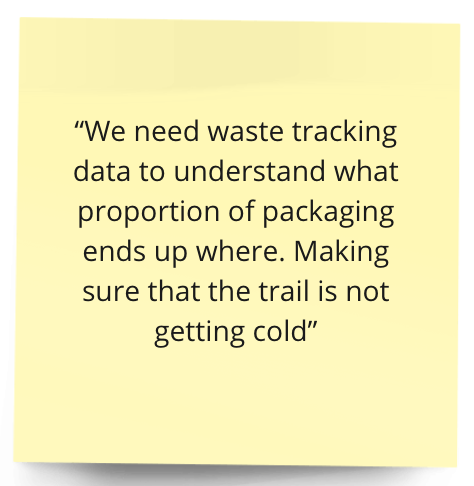
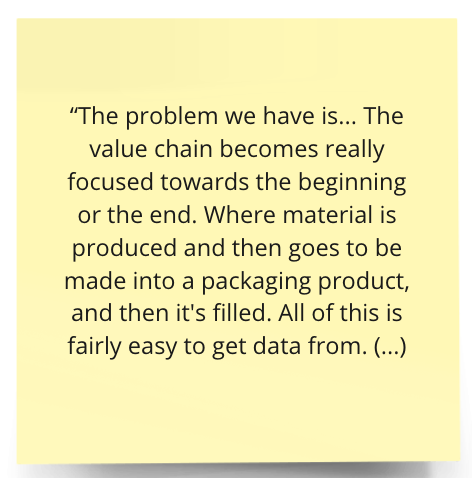
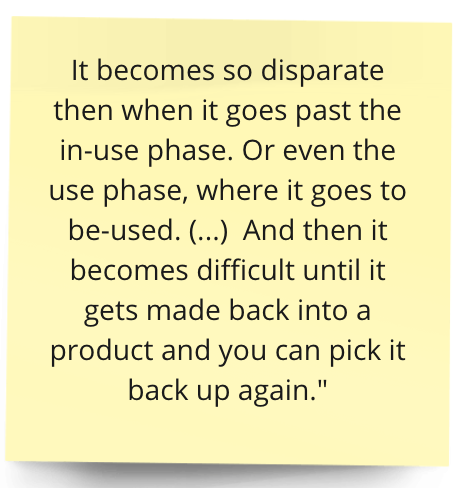
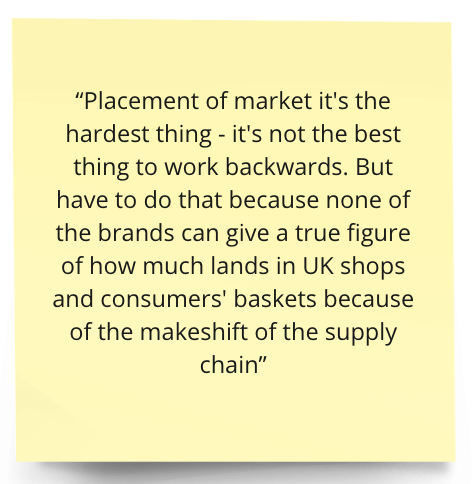
These challenges, in addition to others, create a generalised lack of trust in waste data. This happens, of course, within the value chain itself, but also has an impact from a consumer’s point of view – more and more people who buy products that come in plastic packaging expect greater accountability from brands and retailers.
They want to know what happens to their rubbish and recycling, they want more information to help them make empowered decisions about what they buy and to have better information on how they can dispose of waste correctly.
How organisations are meeting these challenges
We were glad to hear of some stories of success during the workshops. For instance, one retailer said its strategy for dealing with data inconsistency, and the uncertainty around the shifts in legislation, was to take full responsibility for data capture and handling. Since doing that, data accuracy has gone from 15 percent to more than 50 percent!
A compliance scheme operator said that it has created success by moving data collection from its suppliers to an online system that makes live comparisons against their stock-keeping units (SKU) database to ensure that weights are as expected. This system has in-built machine learning and is able to prevent errors, while making data easy to input. The pass rate has sharply increased and the new process has also had positive impacts on resource allocation.
User stories and data fields
Based on all of the things that we heard during the workshops, we came up with a list of user stories:
As someone who works in the plastics-packaging value chain…
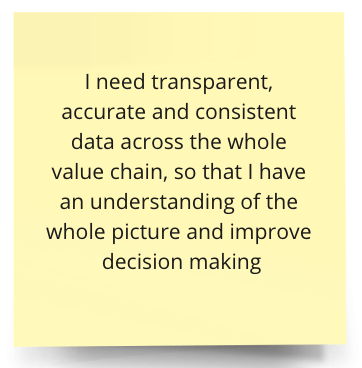
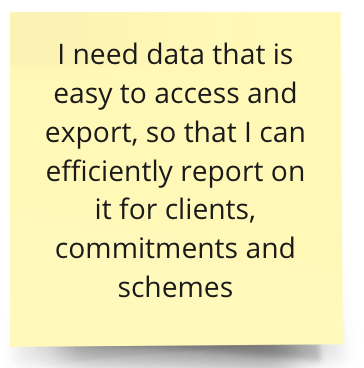
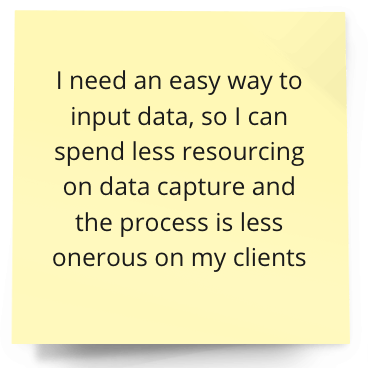
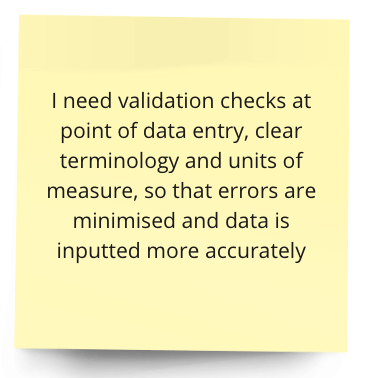
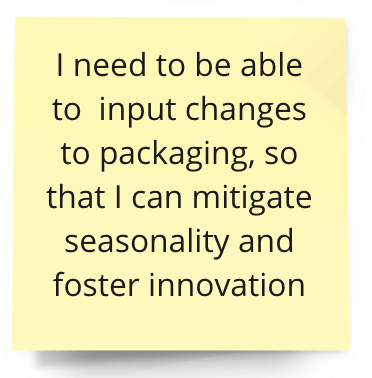
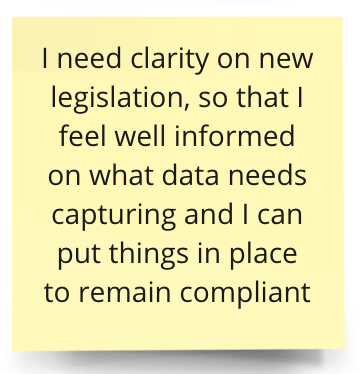
We also got a better understanding of what data fields are currently being collected, such as weight, volume and application, as well as desired ones for the future, such as recycled content and breakdown of composition for each component.
What’s next + how you can get involved
All of the knowledge that we’ve acquired has been poured into a report that you can download here and is now informing the design of the first version of the new data standard. That means we’re moving into ‘alpha phase’, where we will be looking for people to have a look at the standard and give us feedback.
- If you’d like to be a part of that, you can reserve yourself a spot in one of our four stakeholder workshops, happening between 24 January and 10 February.
- If you work closely with secondary and tertiary packaging, we need to speak to you! There are separate events for this area, since we still need more understanding on it. You can reserve a seat in one of our two stakeholder workshops, also happening between 24 January and 10 February.
- If you’ve been involved with our Open3R work, looking at data related to Household Waste Recycling Centres specifically, we will be testing out wireframes in the New Year! If you’d like to be one of our testers, please register your interest here.
- We’re also looking to speak to people who run ‘take back’ schemes and ‘bring banks’! If you know someone who we could speak to, please let us know at clara [AT] opendatamanchester.org.uk.

